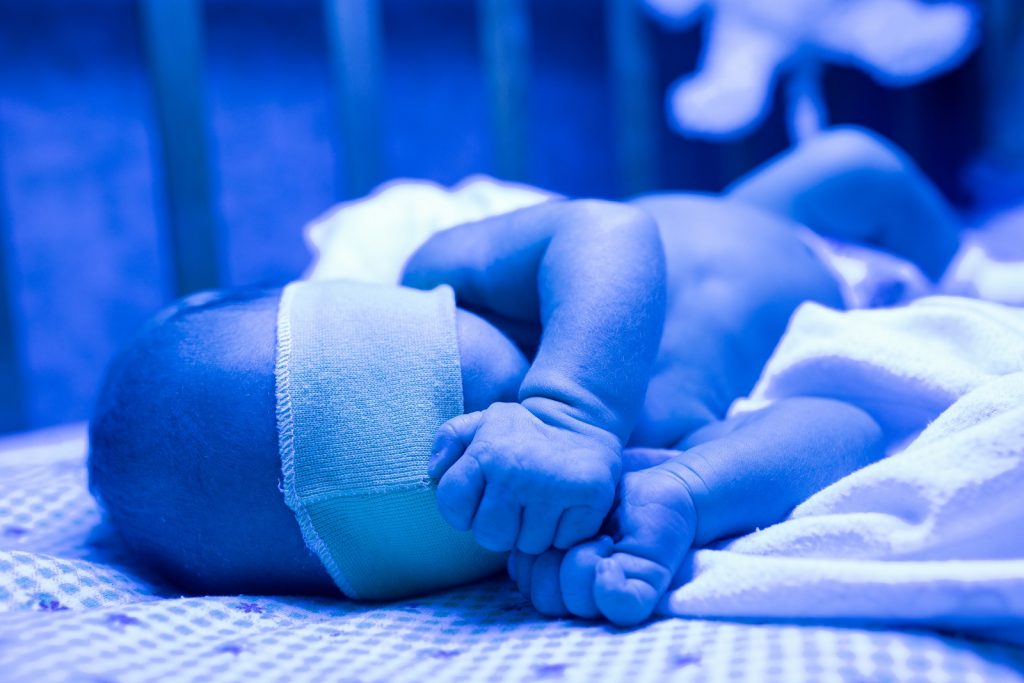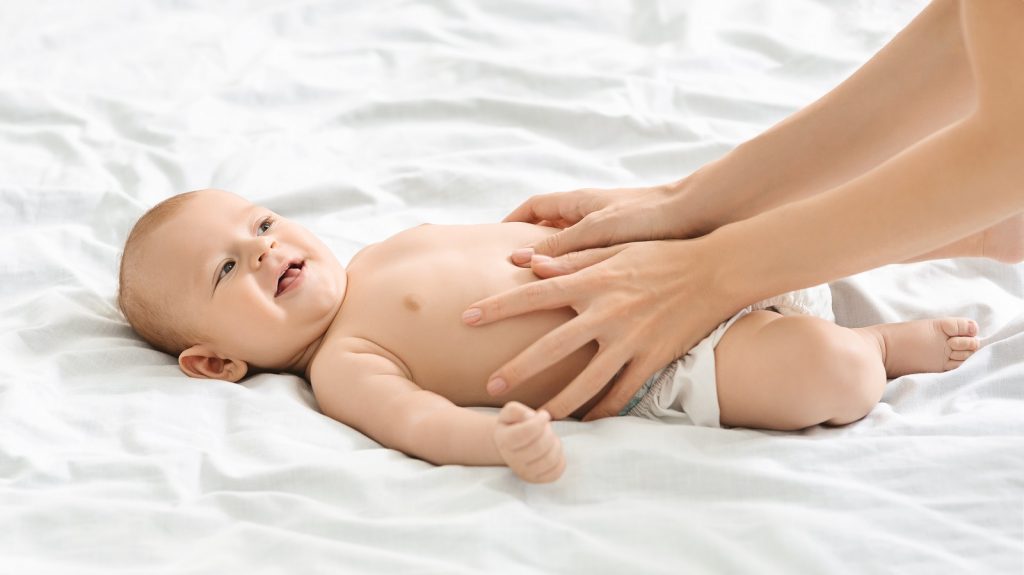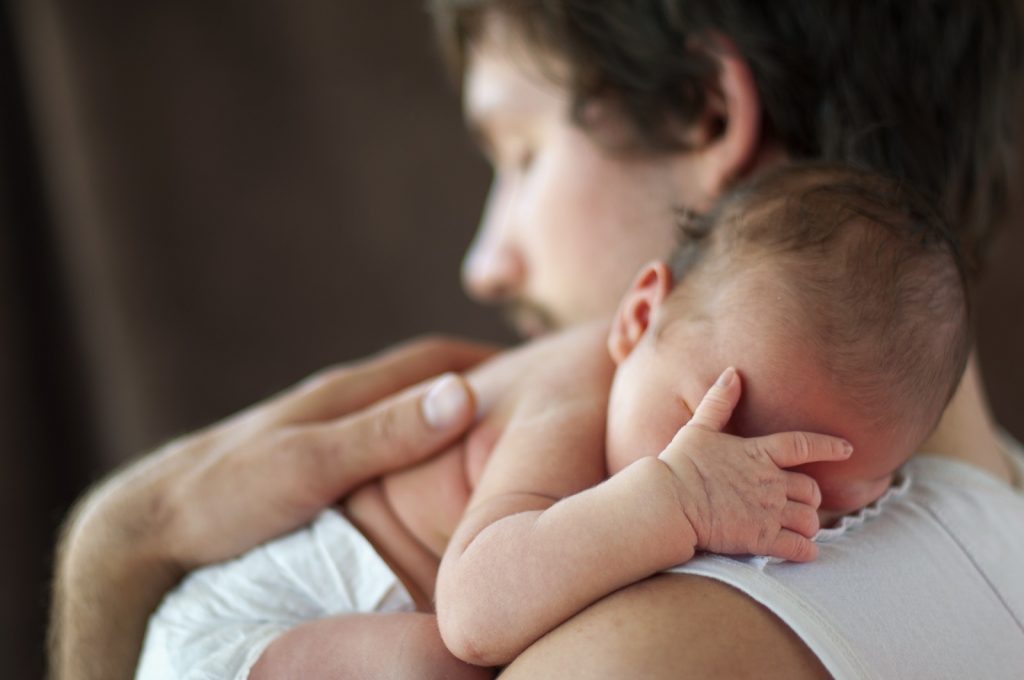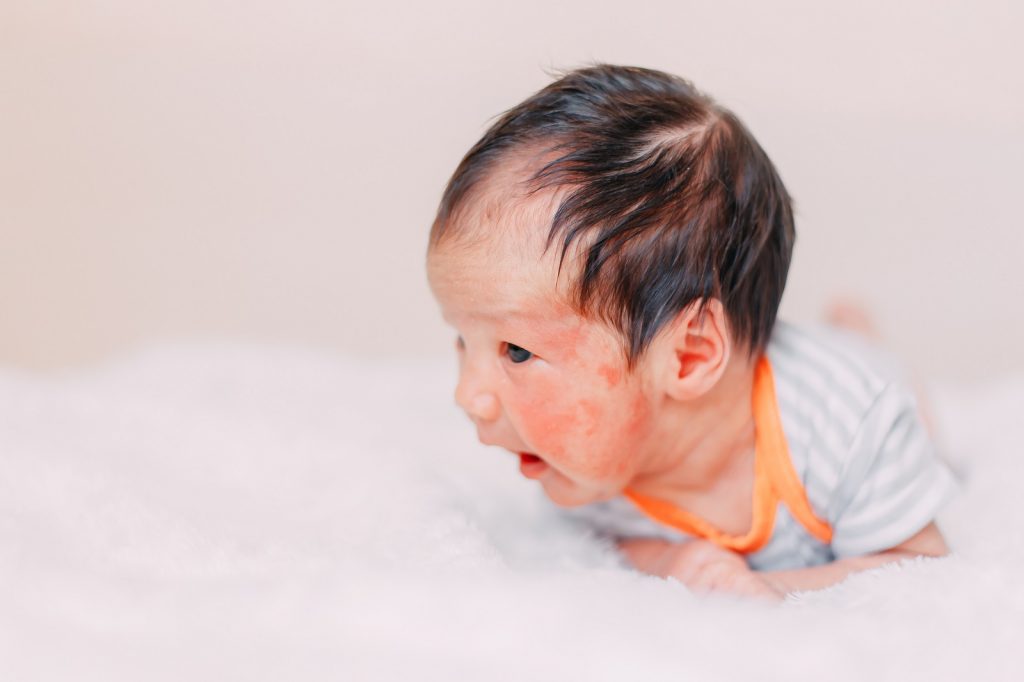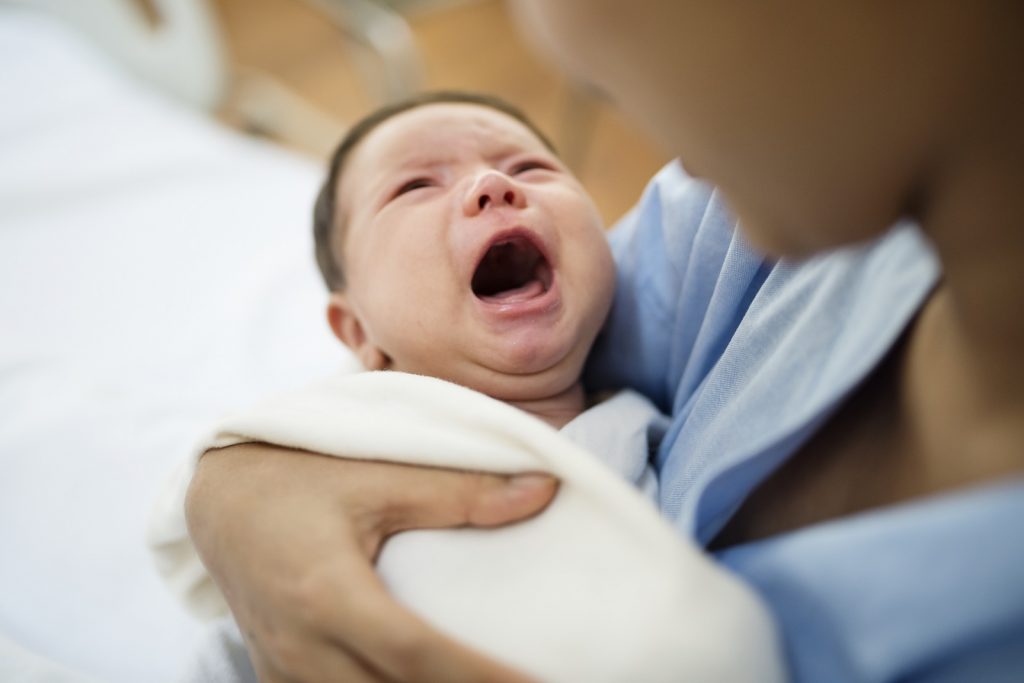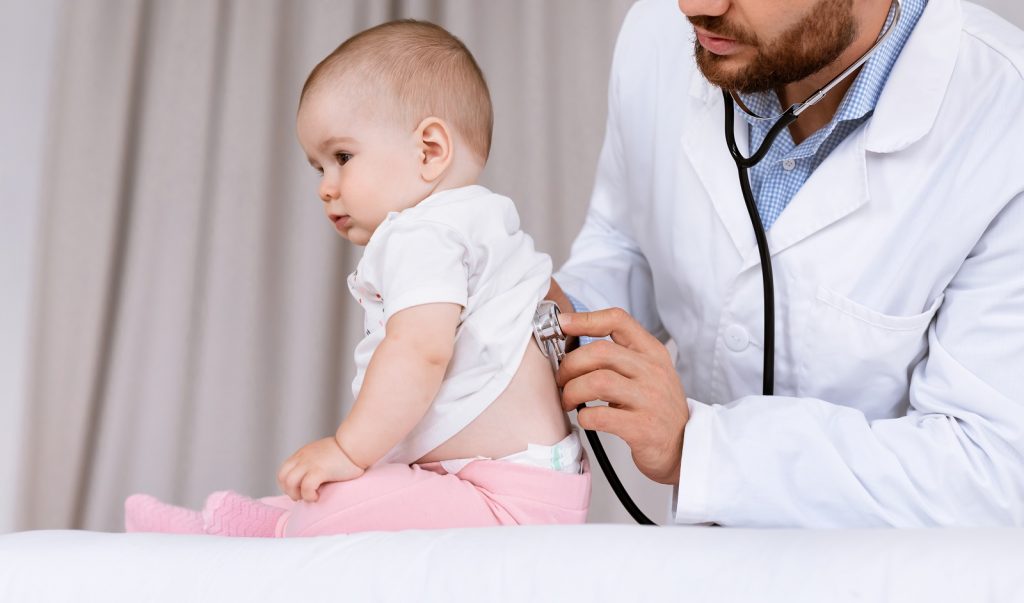
20 Common Health Issues in Newborn Babies | All You need to Know
The main reason why parents should be aware of the health issues in newborn babies is that it could help them understand how to deal with their baby’s condition and also if there is a need for urgency. The article provides information on 20 common conditions in newborn babies and all you need to know about their symptoms, causes, and possible treatments. You can use this information when your baby has any one of these symptoms or when there seems like something is wrong with your baby.
Common Health Issues in Newborn Babies
1) Jaundice:
Jaundice in newborn babies is normal. Sometimes, after birth, a baby’s skin and the white part of their eyes might look yellow. This is called jaundice. During pregnancy, a baby gets from their mother everything they need to grow and develop. One of these things is a substance called bilirubin. When a baby is born, their liver isn’t fully ready to get rid of bilirubin yet. So, the levels can rise in their body and cause jaundice.
Treatment:
If there are no other symptoms like no energy or feeding problems, then your baby might only need special lights (phototherapy). This helps speed up the start of your baby’s liver, so it can get rid of bilirubin. If they have an infection or other symptoms along with jaundice, then they would need medicine to help their liver work better. They might also need to stay in the hospital longer.
Newly Onset Jaundice- This means your baby is more than 24 hours old and you notice them getting yellow in their first day of life. If it isn’t common for your family (like if no one got it), then you should see a doctor right away.
2) Colic:
Colic is when a baby cries for more than 3 hours per day, 3 days per week and for more than 3 weeks. This condition is most common in babies ages 2-3 months to 6 months old. There aren’t many tests that can diagnose colic. The doctor will talk with you about your baby’s health history and give them a physical exam. You can have your baby’s doctor watch you feed or change them to see if they’re doing anything that will cause the crying.
Treatment:
There are things you can do at home that might help your baby with colic. You can keep them upright after feedings for about 30 minutes to help food move through their body. You can also swaddle them tightly (like a burrito) before putting them down to sleep, which could make them feel more secure and comfortable. If these don’t work, talk with your baby’s doctor. They might want to check for things like acid reflux (where stomach acid comes back up) or an allergy/irritation of the digestive system. Medicines called medications you can give them at home might help too.
3) Reflux:
When your baby spits up, it doesn’t mean that they have reflux. Reflux is when the acid in their stomach goes into their esophagus (the tube that goes to their mouth). Reflux happens when your baby’s muscles below their esophagus don’t work as they should. This causes stomach acid to go back up into the esophagus.
Reflux may cause other problems too, so it’s important you see a pediatric doctor right away if this is happening to your baby. If it’s just once in a while, you might not have to do anything. If it keeps happening, then your baby’s doctor may give them medicine that they take by mouth once a day for a few weeks.
Treatment:
You can also try to help your baby with their reflux at home. Some ways you might do this is by:
Feeding them more often and for shorter periods of time. Keeping them upright after feeding. Offering smaller amounts of milk during feedings. Burping them, especially right after eating and before they go to sleep.
4) Allergies:
Your baby can develop allergies from things that come into contact with their skin, like soap and lotion. You can also get allergies from things you breathe in, like dust and pollen.
Treatment:
Allergies are different for everyone. But many babies don’t need medication to treat their symptoms. You might want to try some of the suggestions below that work for other people’s allergies too:
Wash your baby’s bedding, including their crib sheets and mattress cover, about once a week. Use a front-loading washer to clean your baby’s blankets and clothes. Wash new clothes before you wear them. Take shorter showers or baths with your baby during the first year. Clean out your baby’s bassinet or crib often so it doesn’t have any dust or pollen in it.
5) Constipation:
It’s common for babies to get constipated when they are drinking more milk, especially if they are formula-fed. Babies may also get constipated when they are getting less breast milk or formula and more solid food in their diet. Breast milk is easier for a baby to digest than solid food, so when they get more milk and fewer solids in their diet it can cause constipation.
Treatment:
Talk to your doctor before any treatment
If your baby develops constipation, you can try giving them water or prune juice. Talk with your doctor before giving them any kind of juice because too much juice can cause diarrhea. You can also massage your baby’s belly with a little bit of oil as you push in and pull out to help them poop.
6) Cold:
Babies get colds like we do, but they can get really sick from it. A lot of babies get colds because they’re around other kids that have them. Colds are caused by a virus, which is an infection your baby gets when something like a germ enters their body through their nose or mouth.
Treatment:
Babies usually get better from colds in 2 weeks if they don’t have any other health problems. But you can help them feel better with the tips below:
Keep your baby away from tobacco smoke. Tobacco smoke can make a cold last longer in your baby and can also cause health problems later in life, like lung infections and asthma. Wash your hands often when you’re around your baby. Make sure other people wash their hands too before they touch or hold your baby. Warm baths might help your baby feel better because it loosens up their mucus.
Use a humidifier to add moisture to the air in your baby’s room or other rooms where they spend time. That way you can breathe easier too. Alternate between using acetaminophen and ibuprofen every 4 hours for fever over 38°C (100°F). Never give aspirin because it has been linked to a serious health problem called Reye’s syndrome.
7) Abdominal Distension:
It’s common for babies to get belly aches from time to time. Sometimes it might be a sign of another problem, like an infection or abdominal distention. Abdominal distention is when your baby’s belly feels firm and swollen. Your baby may also have pain in their belly or you might see them arch their back or cry.
Treatment:
If your baby has abdominal distention, you can try these things to help them feel better:
Lie your baby on his or her belly across your lap and rub their back. You can also let them rest in a position that they like best. Lay your baby on his or her back with their head flat and then gently pull their legs up to their chest. Talk to your doctor before giving your baby medicine for the pain, but you can give them acetaminophen or ibuprofen if they are over 6 months of age and have no other problems.
8) Bluish Skin and Apnea:
If your baby’s skin turns bluish or gray, it means their body isn’t getting enough oxygen. This can happen when they have a cold and they are breathing fast because it’s hard for them to breathe with a stuffy nose. Bluish skin and apnea can also happen if something is blocking your baby’s windpipe (the tube that carries air to their lungs).
Treatment:
If your baby has bluish or grayish skin, open up his or her mouth and look at their gums. If you see a pink color instead of the normal red color, it means they’re not getting enough oxygen. Call the helpline right away if this happens because your baby needs to get to a hospital right away.
9) Vomiting:
Your baby might vomit once or twice after eating, but if they keep vomiting more than that it could be a sign of an infection. If your baby is vomiting, they might also have a fever or be fussy.
Treatment:
Make sure your baby’s doctor knows what medicines you’re giving them for vomiting, especially if they are taking any antibiotics.
If your baby is over 4 months old and has vomited 3 times or more in the past 24-48 hours, it’s best to give them an anti-nausea medicine so they don’t get dehydrated. But first, call your doctor for advice before giving any medicine to your baby.
10) Coughing:
Your baby might have a dry or wet cough. This can happen when something irritates their airways, like an infection or allergies. A cough is also the main symptom of croup. Croup happens when your baby’s voice box (larynx) swells up and makes it hard for them to breathe through their nose or mouth.
Treatment:
A cough is usually no big deal, but make sure to call your doctor if your baby’s coughing keeps them up at night or is bothering them during the day. You should also let your doctor know if your baby sounds like they’re gasping for air (wheezing) when they cough. A little bit of mucus isn’t usually a problem, but you should call your doctor if your baby is breathing very fast or seems to have trouble catching its breath.
11) Fever:
You might notice when your baby has a fever when they are fussy and don’t want anyone to touch them. A low-grade fever (a temperature up to 38°C/100°F) is normal for many babies each day, but it’s important to call your doctor if you think your baby has a fever.
Treatment:
A fever doesn’t need to be treated if it goes away on its own after 1-2 days and your baby seems fine. You can alternate giving your baby acetaminophen and ibuprofen every 4 to 6 hours. Don’t give your baby aspirin because it can cause a rare but dangerous disease called Reye syndrome. If you take your baby’s temperature with a rectal thermometer, make sure the tip is lubricated so it doesn’t irritate their bottom. Also, check the thermometer to be sure it’s giving an accurate reading.
12)Nose Congestion:
When your baby has a cold, their nose might get stuffed up and they’ll sneeze a lot. Allergies can also cause stuffy noses in babies.
Treatment:
Treatments for stuffy noses vary depending on the cause. In general, you should let your baby drink from a bottle or breastfeed often so they don’t get dehydrated. Saline drops can be useful for a stuffy nose, too. If your baby is congested from allergies you can use antihistamines or decongestants.
13) Swollen Glands:
If your baby’s glands are swollen it usually means they have an infection. You might notice swollen glands when you kiss your baby or try to move their jaw.
Treatment:
If there’s no other sign of an infection, the swollen glands usually go away on their own after a few days. If your baby has other signs like fever or pain in the area where the swollen glands are, call your doctor because they might need antibiotics to make them feel better.
14)Rashes:
Sometimes when babies get a little older they might get acne, red spots, or rashes on their face and body. These rashes are usually harmless and go away on their own in a few weeks or months. You should call your doctor if a mole looks different than the other moles on your baby’s skin.

Treatment:
Babies’ skin is delicate and sensitive, so you should use a mild soap or baby-safe lotion when you wash your child’s skin. If the rash doesn’t go away in a few days, call your doctor for advice on how to get rid of it.
15) Anemia:
Anemia in babies is when their blood cells don’t have enough iron. Children can get anemia if there isn’t enough iron in their diet or their body doesn’t absorb the iron they do eat well. Babies in general are at risk for having low levels of iron because they’re growing so fast.
Treatment:
If your baby is anemic, you can give them iron supplements. It’s also important to make sure they get plenty of vitamin C so their body can absorb the iron better. You should call your doctor if your baby is lethargic, irritable or pale.
16) Diarrhea:
When babies have diarrhea, it means their stool has a lot of liquid in it and they’ll lose weight.
Treatment:
If your baby is otherwise healthy, diarrhea should get better within 24 hours with no treatment. If you’re breastfeeding, you can continue to nurse because diarrhea doesn’t affect the milk. If your baby isn’t eating well or is losing weight, call your doctor because they might need fluids through an IV to get better.
17) Ear Infections:
Ear infections are common in babies because they’re still learning to swallow. When your baby has an ear infection, you might notice that their ears are red or tender when you press on them. Other signs of ear infections are fussiness, decreased appetite and fluid draining from the ears.
Treatment:
Most cases of ear infections get better on their own within a few days, so you don’t need to call your doctor. If your baby is very fussy or uncomfortable, acetaminophen or ibuprofen can be helpful. If the ear infection lasts for more than 24 hours or appears to be getting worse, call your doctor.
18) Croup:
Croup is when your baby gets an infection in their windpipe that makes it swell and causes a barking cough. You might notice that your baby has trouble breathing when they get croup.
Treatment:
Croup usually goes away after one night’s sleep, but if your baby is very fussy or can’t seem to catch their breath, call your doctor.
19)Digestive Problems:
If your baby has digestive problems they might vomit or have trouble with bowel movements. If your baby is constipated, you can give them an infant-safe laxative. You should call your doctor if your baby won’t eat or is vomiting more than usual.
Treatment:
Babies usually grow out of digestive problems like irritable bowel syndrome and lactose intolerance, but if your baby is having frequent, severe symptoms that don’t go away with time, call your doctor.
20) Pneumonia:
Pneumonia is a type of lung infection that causes your baby’s lungs to fill up with fluid. Babies usually get pneumonia after they have a cold or other respiratory illness. You might notice that your child acts stiff, has trouble breathing or just doesn’t look well when they have pneumonia.
Treatment:
Most cases of pneumonia get better with rest and antibiotics. If your child is very fussy or has trouble breathing, call your doctor right away. Your baby might need to be hospitalized if their symptoms are severe.
Conclusion:
Your baby deserves the best care possible. The following are 20 common health issues that newborn babies may face, and what you can do to help prevent them or manage their symptoms if they occur. As a new mom, it’s important for you to be aware of these potential problems so that you know how to react when your child is experiencing discomfort or distress. Educate yourself on all aspects of your baby’s development and how he/she will grow in order to stay healthy! All the best.
Quick Questions:
- What are the signs of an unhealthy newborn?
A baby with unhealthy signs will likely show a lack of interest in surroundings, no response to noise, unkempt appearance, and having discolored skin.
- How can I make my baby healthy?
You can make your baby healthy by giving them a proper safe surrounding and most importantly a good diet. Just feeding your child nutritious food from the start will help in making your baby healthy.
- How can I improve my baby’s brain?
You can improve your baby’s brain by playing with your child. Talking to them and interacting with them will help in developing their brain. You can even teach them simple things like numbers and alphabets etc.
- What is the first food I should give my baby?
You should give your baby cerelac or any other milk based cereal food. This is the first food that you can feed them after they are born.
- How do I start breastfeeding?
Breastfeeding is one of the best ways to take care of the newborn child. You just need to place your child on your lap facing breast and let the child latch on to the nipple.
- When should I take my baby to a doctor?
If you see that your baby isn’t developing as per the standards, then you should take them for a proper check-up. If you feel that he/she is suffering from constant cold and cough or having trouble in breathing, then you should immediately take them for a check-up.
- What is the healthy weight for a newborn baby?
Newborn babies usually have a healthy weight of around 3.5-4 kg. If your baby is having a healthy weight then you can consider yourself lucky.
- How long is the newborn stage?
The newborn stage usually spans from birth to 3 months. Every baby is different and passes through this stage at a different pace.
- When do you start tummy time?
You should start tummy time as soon as you can. You can do it after feeding your baby or when they are awake and alert. This is very good for proper development of the child’s neck and back muscles and also to strengthen their legs and hips.
- How often do newborns need a bath?
Newborns need a bath every day. This is very important to keep them clean and healthy.
- What are the precautions I should take when feeding?
When you feed your baby, make sure that their head is tilted slightly upwards and they are not lying down in a completely horizontal position. Make sure the room in which you feed them is calm and free of any disturbances.
- What is the best way to burp my baby?
The best way to burp your baby is by placing them on your left arm with their head resting on your shoulder. Then gently pat their back till they burp. You can also hold them in an upright position till then burp too.
